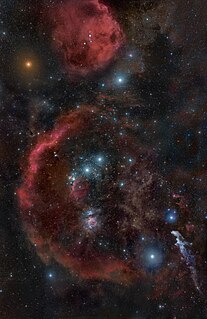In Greek mythology, Argus ( /ˈɑːrɡəs/ ; Ancient Greek: Ἄργος Argos) was the builder and eponym of the ship Argo , and consequently one of the Argonauts; he was said to have constructed the ship under Athena's guidance. [1] Arestor, a member of the Argive royal house, is given as his father by Apollonius Rhodius [2] and John Tzetzes, [3] but Hyginus says Argus' parents were Polybus and Argia [4] or Danaus to be his father. [5] In Valerius Flaccus' Argonautica, Argus is said to have originated from Thespiae. [6] Argus was also credited with creating a wooden statue of Hera that was a cult object in Tiryns. [7]

Greek mythology is the body of myths originally told by the ancient Greeks. These stories concern the origin and the nature of the world, the lives and activities of deities, heroes, and mythological creatures, and the origins and significance of the ancient Greeks' own cult and ritual practices. Modern scholars study the myths in an attempt to shed light on the religious and political institutions of ancient Greece and its civilization, and to gain understanding of the nature of myth-making itself.

The Ancient Greek language includes the forms of Greek used in Ancient Greece and the ancient world from around the 9th century BCE to the 6th century CE. It is often roughly divided into the Archaic period, Classical period, and Hellenistic period. It is antedated in the second millennium BCE by Mycenaean Greek and succeeded by medieval Greek.

An eponym is a person, place, or thing after whom or after which something is named, or believed to be named. The adjectives derived from eponym include eponymous and eponymic. For example, Elizabeth I of England is the eponym of the Elizabethan era, and "the eponymous founder of the Ford Motor Company" refers to Henry Ford. Recent usage, especially in the recorded-music industry, also allows eponymous to mean "named after its central character or creator".
He should not be confused with the hundred-eyed giant Argus Panoptes.

Argus Panoptes (All-seeing) or Argos is a many-eyed giant in Greek mythology. The figure is known for having generated the saying "the eyes of Argus", as in to be "followed by", "trailed by", "watched by", et cetera, the eyes; the saying is used to describe being subject to strict scrutiny in one's actions to an invasive, distressing degree. The monstrous entity has been either directly included or indirectly alluded to in a wide variety of works influenced by Greco-Roman thought over the past several centuries.


